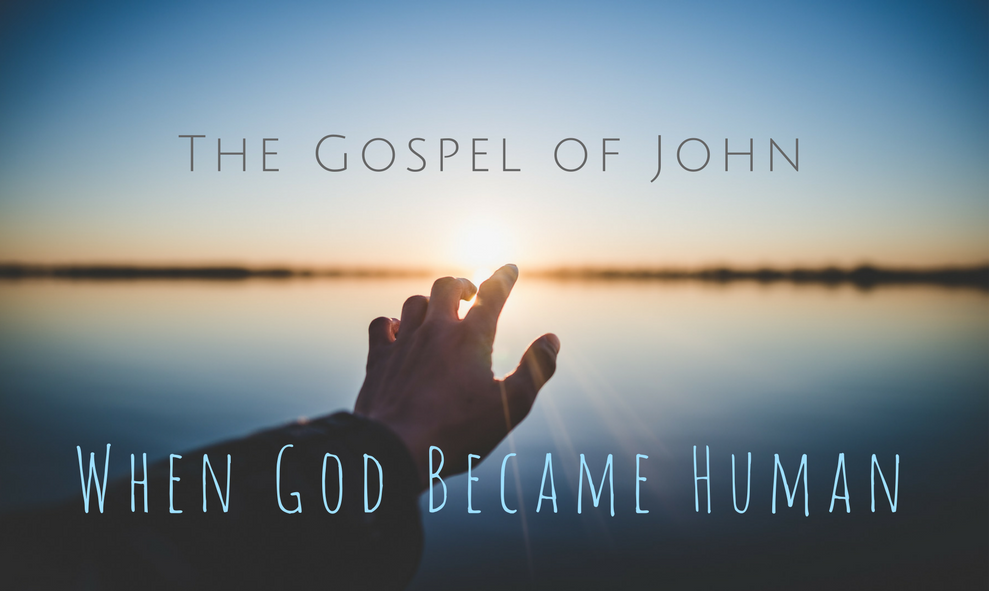Figurative language is found throughout the Bible. It can be symbolic or illustrate a spiritual truth or prophetic insight, or both. But figurative language is not intended to be mystical and obscure. Figurative language uses familiar imagery to explain what is unfamiliar or unknown.
In the Bible, what is spiritual in nature or other-worldly is related to something or someone known in the natural world. When Jesus called Himself “the Bread of Life,” He wasn’t saying that He was a loaf of bread.
Bread is a staple of life for many people. It helps sustain us in daily life. And bread is connected to spiritual truths in other places in the Bible.
Moses referred to the manna sent from heaven by God when he said—man does not live on bread alone but on every word that comes from the mouth of the LORD (Deut 8:3). Jesus does the same when referring to Himself as sent from heaven by the Father. Jesus also quoted what Moses said when tempted in the wilderness (Matt 4:4).
So, as you read this segment of verses, understand that Jesus speaks of spiritual truth not baked goods when He says—I am the Bread of Life.
Scripture
“I am the bread of life. Your ancestors ate the manna in the desert and died. This is the bread that comes from heaven so that whoever eats it won’t die.
I am the living bread that came from heaven. Whoever eats this bread will live forever. The bread I will give to bring life to the world is my flesh.”
The Jews began to quarrel with each other. They said, “How can this man give us his flesh to eat?” [vss 48-52]
Jesus told them, “I can guarantee this truth: If you don’t eat the flesh of the Son of Man and drink his blood, you don’t have the source of life in you. Those who eat my flesh and drink my blood have eternal life, and I will bring them back to life on the last day.
My flesh is true food, and my blood is true drink. Those who eat my flesh and drink my blood live in me, and I live in them.
The Father who has life sent me, and I live because of the Father. So those who feed on me will live because of me. This is the bread that came from heaven. It is not like the bread your ancestors ate. They eventually died. Those who eat this bread will live forever.” [vss 53-58]
(John 6:48-58 GW)
Key phrase—
I am the living bread that came from heaven. Whoever eats this bread will live forever.
Digging Deeper...
Review the Scriptures above as you answer the following questions
What are the two metaphors (figures of speech) Jesus uses to refer to Himself?
What does He compare and contrast in Jewish history to His being the Bread of Life?
What promises does Jesus make about eating His flesh and drinking His blood?
How do the Jews who hear this react to what He says? Why?
Reflection...
When Jesus says, “I am the Bread of Life,” it is one of several “I am” declarations He makes that are only found in the gospel of John. What He’s declaring becomes more clear later in John (John 8:58). It is a declaration of His divine nature as the Son of God.
Jesus speaks of the need to “feed” on Him to receive life beyond our physical life in this world. If we don’t feed on Him as the Bread of Life, we won’t have the source of life in us (Him) and won’t experience resurrection to enjoy eternal life with God.
Jesus explains what He means in verse 56 when He says—Those who eat my flesh and drink my blood live in me, and I live in them. He speaks of a life that transcends natural life. Jesus relates this to the relationship He has with the Father in heaven. We are to have a relationship with Him in the same way.
Those who heard Jesus speak these truths did not understand what He meant. As we’ll see later, even His closest followers didn’t grasp all Jesus said here. But it is a simple comparison between those who ate the manna in the wilderness with Moses and died, with those of us who feed on Jesus as the Bread of Life—those who personally trust in Him by faith.
Taking it to heart...
Read through the Scripture text again as you consider and answer these questions
What comes to mind for you when Jesus says, “I am the Bread of Life”?
Why do you think Jesus uses this figure of speech to describe Himself?
Do you understand the difference between those who hate manna in the wilderness and those who feed on Jesus as the Bread of Life?
How do you feed on Jesus as your Bread of Life? What are specific ways you do this?
Personalize it...
Meditate On This— Jesus speaks of a life that transcends natural life and relates it to His relationship with the Father in heaven. When we learn to “feed” on Jesus in a personal way, we can have a similar relationship with Him.
Prayer Focus— If you’re not sure how to feed on Jesus as your Bread of Life, ask for His help. One simple way to begin is to pray as you read the Bible—ask God for insight then ask His help to put what you understand in His Word into action in your daily life.
©2019—Word-Strong




